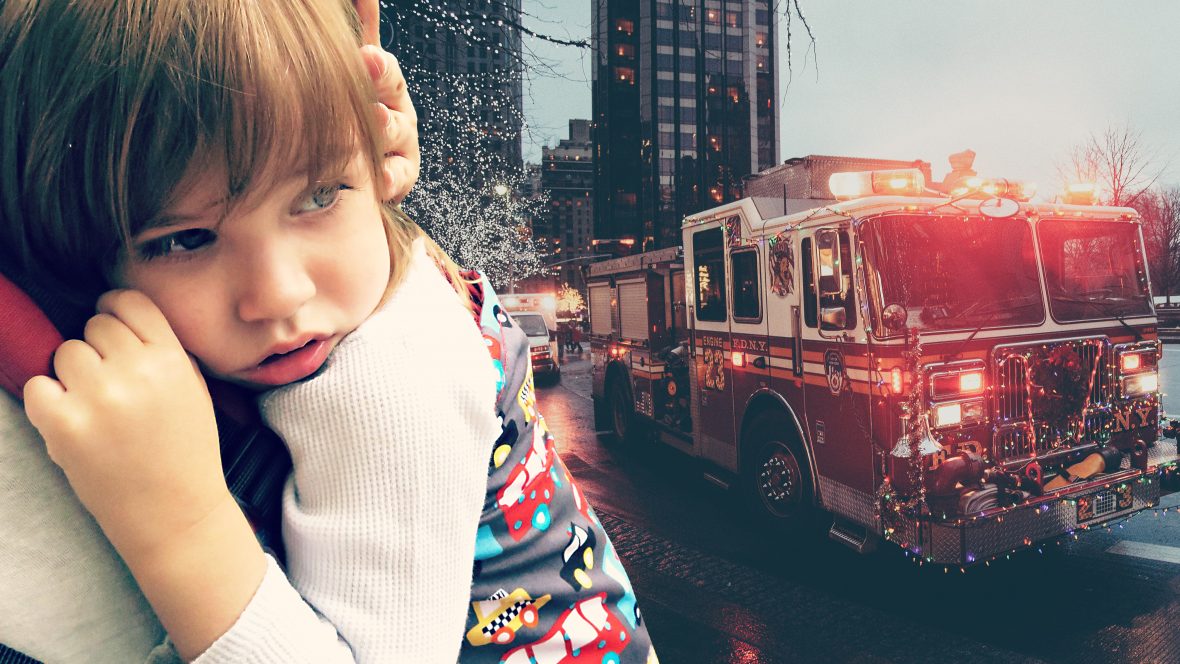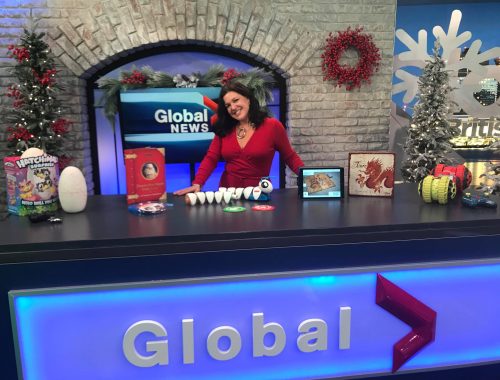Today we were watching Freebirds, a movie about a pair of turkeys who travel back in time to eradicate Thanksgiving. My almost-two-year-old was captivated; he’s really into bird movies. Anyway, *spoiler alert* at the end of the film a tribe of early turkeys from the 1600s mourn the loss of their great leader by flapping their wings forward in a circular motion to create a swirling tribute of scattered feathers, spiraling up into the air. It’s a moving moment in the film and I looked down at my sweet son and saw that he was emulating their actions with his arms, slowly windmilling in a beautiful, almost spiritual show of empathy.
I was moved. It dawned on me that I thought of him as a baby still, incapable of understanding this subtle show of sadness and love. It’s true, his day-to-day temperament veers sharply from terrible toddler displays of frustration to sheer unadulterated joy, but this…this was something else.
Suddenly I realized that our children are far more sensitive than we know (probably because we’ve become relatively insensitive in our ‘old age’) and they can understand and internalize far more than we imagine.
Tragedy at the Pulse Nightclub
I’d been offline all day when the shooter opened fire on the people at Pulse Nightclub. My phone had died and we were out at a family event, so it was a shock to come home and read that, once again, love had lost a great battle.
This tragic day ended in the confirmed deaths of 49 human beings and more injured. A massacre of people singled out for death for no good reason, each of whom was once somebody’s child. Their lives were made up of thousands of minutes, of sweet kisses with loved ones, of moments of frustration and sheer joy—moments of sadness and love.
Talking to Kids about Tragedy
So what do we tell our darling children now? The day after something like that happens. How do we explain that such great terror can come at the hand of another human, someone who could have been a neighbour and not an obvious villain? Fred Rogers of Mister Rogers’ Neighborhood always comes to mind at times like these. He said, “When I was a boy and I would see scary things in the news, my mother would say to me, “Look for the helpers. You will always find people who are helping.””
Look for the Helpers
Look for Helpers. It comforts me, sure, but I don’t entirely understand what it means. On one hand it seems to point to the services that are set up in society to ‘help’ when things go wrong. It points to the ‘firemen’ who put their lives at great risk to save us when planes fly into buildings with the intent of causing devastating harm. But doesn’t this quote also refer to us, the ‘helpers’ across the globe who are gutted when this type of thing happens and dream of ways to change the world? Doesn’t it speak to our efforts to somehow hold each other up through sharing our horror with each other across numerous public forums like this one? And aren’t we also helpers when we hold our babies close and tell them that these acts are the terrible exceptions, and that in spite of (and sometimes because of) great tragedy, love will always win?
So what do we do then—as helpers. How do we help love win? Is a post or share on social media our only outlet? The situation seems so bleak, the hole so deep, and at the end of the day, we’re just families, struggling to make nutritious meals and keep our kids from wearing their pyjamas to school. Who will step up to the plate to make the difference?
Support Companies that are Helpers
And that’s when corporations, both big and small, stand by us and put their money where their mouth is to help meet the mark. They don’t have to, you know. They are companies that exist to provide products and services to the public in exchange for money. Sure, some of them go the extra mile in these crazy times for street cred, but the smart ones really get that if they don’t protect the communities they serve, there won’t be communities left to serve. They’re the helpers too, so please seek them out.



So looking forward to hearing from you mamas!
Look for the good — the goodness in humanity — when bad things happen. Very thoughtful.
Beautifully said!
I always tell my daughter that I will love her no matter what, for all her life. She’s only 16 months’ old now, but I want her to know that she will be the most important one in my life.
Great post Lonelle!
Wonderful read and rare for a company to really get it right with consumers during a time of tragedy. Providing parents the closeness and comfort of a baby carrier while at the same time offering families a way to to help victims’ families and community during this terribly sad time. Well done Baby Tula, providing comfort to both customers and community.
I always whisper that ‘i will love you no matter what’… or ‘everything is ok now’
my babies will be loved no matter what, and no matter how old they are!
Love is beautiful and love an be difficult. Love is something we do and show.
I tell my littles that love cannot be measured by anything in the world. Love is timeless love is priceless.
This is beautiful!
I tell my daughter how much I’ll always love her, no matter what her future holds.
I always tell my boys your dad and I will make sure you will always feel loved. Share that love to the world. There is no room for hate even if you dont see eye to eye. You don’t always have to agree with everyone’s opinion, just understand them and share the love.
I always tell Sophie that I’ll love her no matter where she goes or who she becomes.
Right now, for my son, I keep the message pretty simple. I hold him close and say, “I love you”. When he gets older and has big questions, maybe it will become more… but I think “I love you”, plain and simple, said and shown often, is just right.
Love this carrier and what it signifies.
I tell them I love them with all my heart and that that will never change no matter what happens.
I tell them that I love them, every day. Every second. Just randomly. When they get older I will tell them that love is unconditional and that whatever or whoever they become, I’ll always love them.
I can’t wait to meet and hold my little one and tell them how much I love them
I tell my little one that LOVE is everywhere, from our actions to our words.
I tell my son that I will always love him no matter what mistakes he makes or what accomplishments he achieved because he’s my little guy.
I like to snuggle my little one and sing little love songs to her…usually Beatles songs 🙂
I too have wondered what kind of world I’m bringing my babies into… but there IS so much good in the world, and so much truth to the notion that we need to be the change we want to see in the world. The more we can raise each other up, the better the world will be. So often those who are considered “evil” in this world are those who didn’t get help when they needed it, or still don’t (like those living with mental health issues). Raising our kids close to our hearts gives them the best shot at being happy, healthy and loving people.
I tell them they are perfect.
I tell my daughter that I love her no matter what and that I’ll always protect her.
Love your post Lonelle!
The world is so not what it used to be! I remember growing up without even knowing what the term “terrorists” meant and here I am now completely petrified of this world that I’ve brought my beautiful innocent child into. I hope we’re able to teach our children well and our future generations are able to provide a better place for themselves then what our generation has done for itself!
I will love you forever and tell each of my children how loved they are from others as well as mommy.
I tell my little ones that there is no greater feeling in the world than the love you have for your babies and that love is strength.
Love always prevails over hate.
Love your writing style, love the message even more. I want to raise my boys to not only look for helpers, but to become them <3
Beautifully written and what a wonderful way to be a helper.